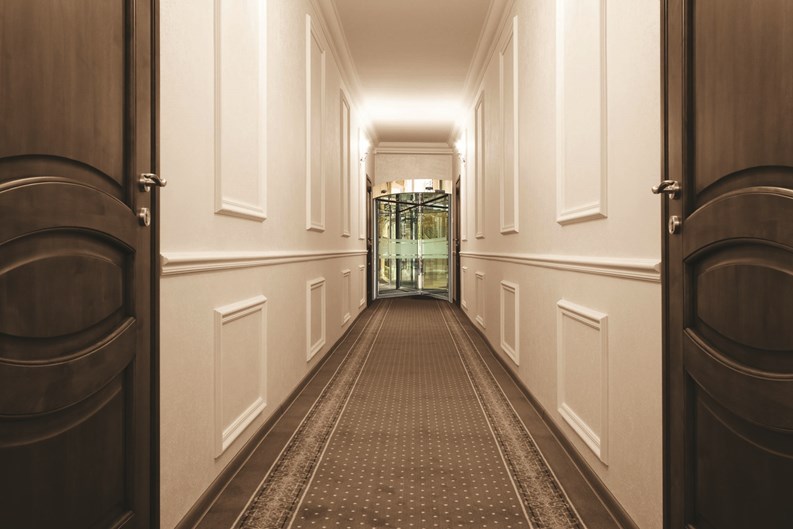Aside from yourself, who exactly may live in your condo or co-op unit? While you as the owner might believe you have the sole authority to make that decision, most (if not all) condominium and co-op properties today have policies spelled out in their governing documents that determine the answer to that question.
“It’s all based on governing documents,” says Jeffrey Turk, an attorney specializing in common interest community law and principal in Turk & Quijano LLP in Braintree, Massachusetts. “Some have no restrictions, and some have significant restrictions, but really it’s based on individual documents.”
The Nature of Restrictions
The nature of these restrictions tends to fall into a few different categories. First, they set a minimum and maximum term for leases. The more important of the two is the minimum lease term, because it sets a baseline for how much rental turnover the building will tolerate. According to Turk, typical minimums are anywhere from 30 days to six months, and the maximum is usually one year. In other words, buildings aren’t usually on board with residents renting out their apartments for two weeks here and there to make a few bucks.
The second component of leasing restrictions in condominiums governs how frequently you can lease your unit. Most restrict you to once in a twelve-month period, regardless of the lease term. What that effectively means is that if you lease your unit for one year, but one month into the lease your tenant leaves, you will not be able to lease again for 11 months.
A third common restriction prevents you from leasing for a specific period of time after you take title. For example, you cannot lease out your unit for the first year after you purchase it. This rule is designed to encourage owner occupancy.
“Usually we see some minimum term,” says Turk. “Most associations want to avoid transient housing. Transient housing has issues, security risks being number one. Who lives in your building? You know when you see your neighbors in the hallways, [but] when you have transients, other residents start to disregard unknown persons wandering the halls. They assume it’s the new guy in 206. They don’t think to notify security, management or the police. When we know who lives in our building we might approach a stranger or call security or do something. That’s why associations want to see some minimum lease term. There’s also the issue of wear and tear on the property. As more people move in and out, there’s the likelihood of more and more damage to the elevator, hallways, etc.
“Minimum terms tend to be 30 days,” Turk continues. “Some associations only permit one lease per year, but it varies. I find the older associations often have no restrictions, while the new associations or those that have updated their documents definitely deal more with the issue. A lot of condominium documents stipulate that the leasing owner provide a copy of the lease, so the trustees know who is living there.”
Finally, some communities impose restrictions based upon the number of units in the community that can be leased at any given time.
The Millennial in the Guest Room
Particularly in condominiums, unit owners have a right to lease out their units, with some reasonable level of restrictions as outlined above. But what about other potential non-resident occupant situations? What if your adult children move back in? What if an aging parent becomes too frail to live alone? What if you want a roommate, or your best friend from college wants to stay in your unit while you’re in Paris? There’s a contingency for every one of these and more.
A fact of life today is that many of us have grown children who are unable to afford to live on their own and we want to help them out for a while. Will your condominium or co-op permit junior to camp out in the guestroom?
Barbara Polychronis is a community manager with FirstService Residential at Glenbrooke, a 430-unit condominium complex in Bridgewater, New Jersey. The community has a combination of townhome-style and traditional condominium units. “Usually grown children moving in aren’t a problem,” she says. “Where we sometimes run into a problem though, is with parking. There are simply not enough spaces. Residents can get upset. They come home from work and there aren’t enough spaces near their units. They start looking at which cars don’t move much. Interestingly, we’ve had situations where college-age children go off to school and leave their cars with their parents. The cars sit and are inactive, and that creates the issue. We encourage these people to use the overflow parking lots which are farther away. At Glenbrooke, vehicles must be registered with the office, and the association likes to know who and how many people are living in the unit for security and emergency purposes.”
Turk reports that he has rarely if ever seen or encountered a problem at a condominium involving the grown children of owners moving in with their parents. Like Polychronis, he notes that the biggest real pressure from the situation is with parking. “The only real problem is with parking and common area amenities. There are more people using them. That applies across the board to children, friends or roommates.”
Dear Old Dad…or Mom
An often-challenging reality today in addition to adult children who may want to camp out in the guestroom for a while is the parent who can no longer be on their own. Assisted living facilities are not for everyone, for many reasons. What position will your condo association or co-op corporation take in the event you want to move your mother or father-in-law into the second bedroom? A lot of their response will have to do with the functionality of that person.
As is the case with adult children, moving a parent in can be taxing on the community in terms of public spaces and parking arrangements. According to Scott Piekarsky, an attorney representing common interest communities based in Wyckoff, New Jersey, “If you need to take care of a family member, boards need to be more sensitive with the situation. In most condominium and HOA documents, we don’t see any issues with elderly parents and restrictions.” Home health care aides can sometimes cause a problem with the parking the same way adult children can, especially if their visits are lengthy and ongoing. But, Piekarsky adds, “If parking is not an issue, then caretakers aren’t an issue either.”
A particular problem in Massachusetts stems from the many colleges in the state. “More and more associations are calling on us to determine if they can impose restrictions,” says Turk, especially where there are a lot of students, who tend to create a lot of noise.”
Imposing restrictions can be problematic, however. Generally, says Turk, governing documents require that changes in policy of this type must be made by amendment to the governing documents. This generally requires a super-majority of owners – a hard thing to get to begin with, and in particular where you have a lot of owners who lease out their units.
Association Liability
Turk also raises the issue of screening tenants, and the potential liability of collecting and storing people’s very personal information. “One issue we face is where associations request more and more information on potential tenants,” he says. “This can cause other problems. Do we really want to be in the business of screening people? Does the association take on the liability for that? If someone moves in and turns out to be a serial rapist, the more information we have, the more involved the association is, and the more liability it has. Trustees should be balanced and not turn into the guest police. Owners should be required to properly screen for criminal backgrounds. The onus should be on the owner, not the association.
Short-Term Rentals
One of the hottest hot-button issues in the past few years has been Airbnb and other types of short-term rentals. The vast majority of associations and other common interest communities will not permit them, and basic leasing and/or subleasing rules and requirements pretty much prohibit them in other types of housing.
Turk says, “Airbnb is a bigger and bigger issue for us, both in apartments and condominiums. It’s transient housing, and it raises significant security concerns and behavioral concerns. We have more and more complaints about people using their units for nightly rentals. You have people coming and going, like a hotel. They are not screened. How do you control this? A unit owner rents out his unit for New Year’s Eve, huge party, drinking, noise – and then they’re gone in the morning. It’s a significant issue, and most documents have some prohibitions on this. We recently had a case where the court found, though, that a restriction on short-term leases did not prohibit Airbnb because of the way [the rule] was drafted. It’s not a sublet. It’s transient housing – and you must have a specific provision in your documents prohibiting that. Many of our clients are adopting specific prohibitions against Airbnb that include a provision against advertising on Airbnb with specific fines for those caught doing it.”
As security becomes an issue these days, it has to be known that unit owners are responsible for the actions of their tenants. They are also responsible to be sure that the tenants are provided the rules and regulations to the community and to follow them. When a violation is at hand, it is the owner who is fined and then his or her responsibility is to talk to their tenant to prevent it happening again.
A.J. Sidransky is a staff writer/reporter for New England Condominium, as well as a published novelist.







Leave a Comment